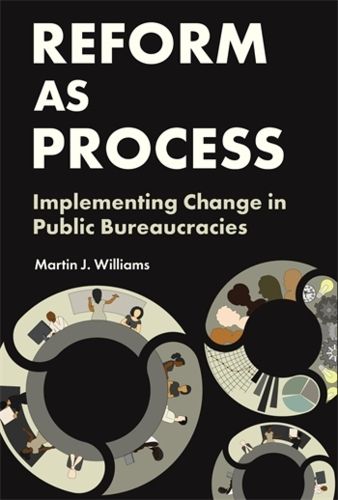Readings Newsletter
Become a Readings Member to make your shopping experience even easier.
Sign in or sign up for free!
You’re not far away from qualifying for FREE standard shipping within Australia
You’ve qualified for FREE standard shipping within Australia
The cart is loading…






Building an effective civil service is crucial for public service delivery and good governance, but reforming bureaucratic institutions is notoriously difficult. This book takes a fresh perspective on this challenge by documenting and analyzing the implementation of more than one hundred reforms initiated by six African countries over the last thirty years.
Martin J. Williams shows that these efforts largely fell short of their goals because they typically approached organizational change as a matter of changing formal structures and processes through one-off projects. Some did yield positive changes, however, when they were able to create opportunities for civil servants to discuss performance and how to improve it. Drawing on this evidence, Williams develops a new theory of how systemic reforms can lead to meaningful change-not by trying to force it through top-down interventions but by catalyzing an ongoing and decentralized process of continuous improvement.
Reform as Process makes theoretical and empirical contributions to research on organizational performance, civil service reform, and public service delivery, and it shares practical insights and strategies to help reformers around the world achieve meaningful change in their organizations.
$9.00 standard shipping within Australia
FREE standard shipping within Australia for orders over $100.00
Express & International shipping calculated at checkout
Stock availability can be subject to change without notice. We recommend calling the shop or contacting our online team to check availability of low stock items. Please see our Shopping Online page for more details.
Building an effective civil service is crucial for public service delivery and good governance, but reforming bureaucratic institutions is notoriously difficult. This book takes a fresh perspective on this challenge by documenting and analyzing the implementation of more than one hundred reforms initiated by six African countries over the last thirty years.
Martin J. Williams shows that these efforts largely fell short of their goals because they typically approached organizational change as a matter of changing formal structures and processes through one-off projects. Some did yield positive changes, however, when they were able to create opportunities for civil servants to discuss performance and how to improve it. Drawing on this evidence, Williams develops a new theory of how systemic reforms can lead to meaningful change-not by trying to force it through top-down interventions but by catalyzing an ongoing and decentralized process of continuous improvement.
Reform as Process makes theoretical and empirical contributions to research on organizational performance, civil service reform, and public service delivery, and it shares practical insights and strategies to help reformers around the world achieve meaningful change in their organizations.